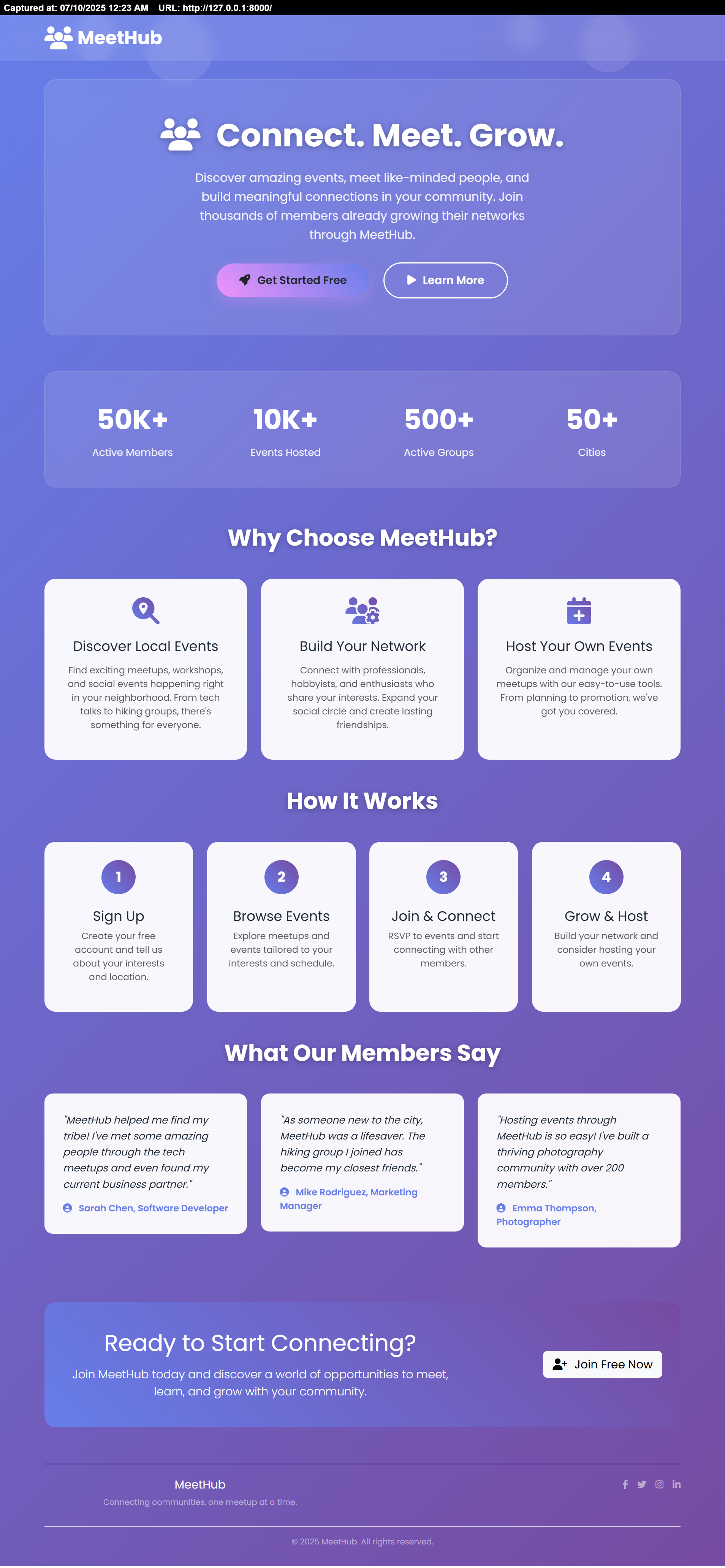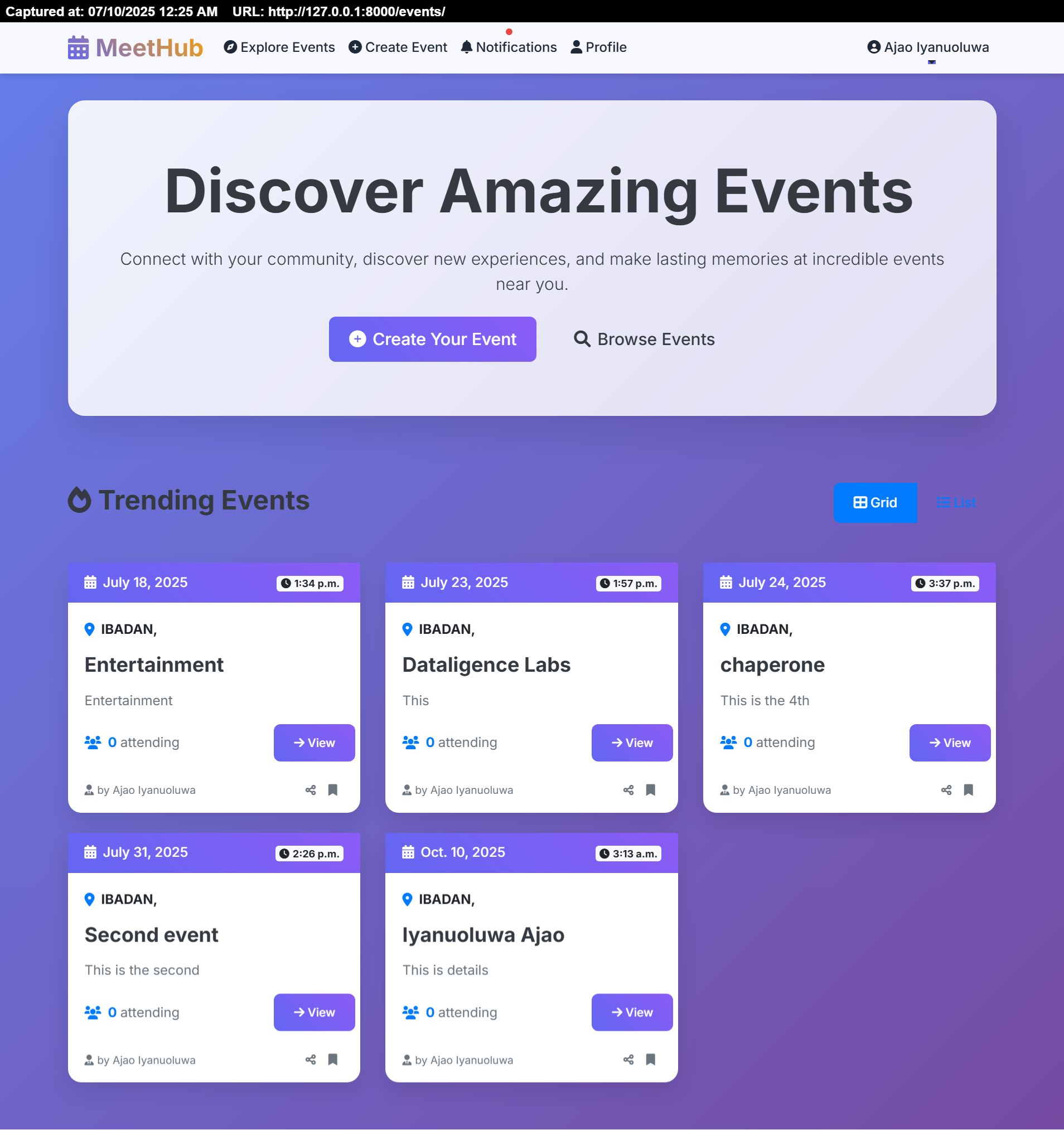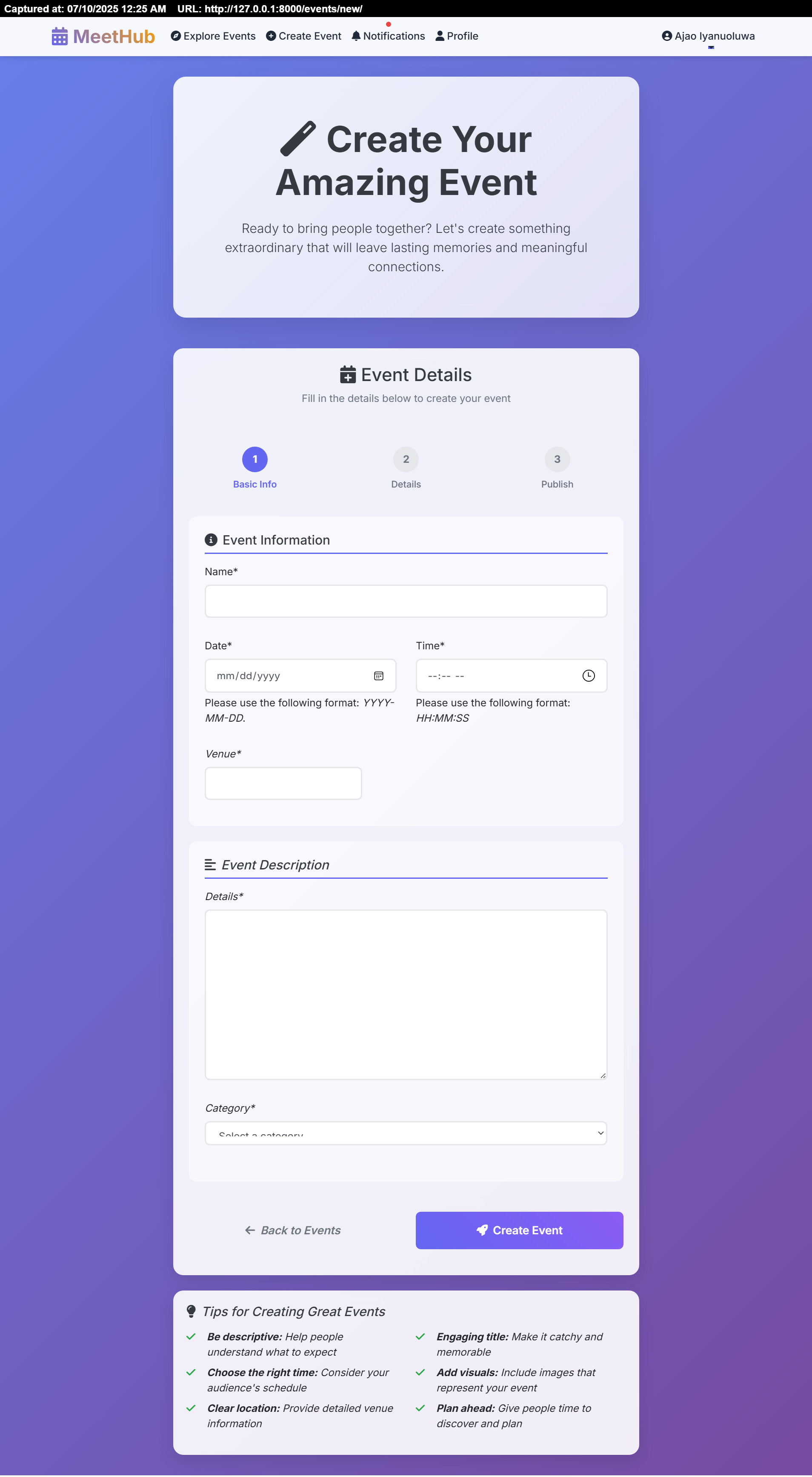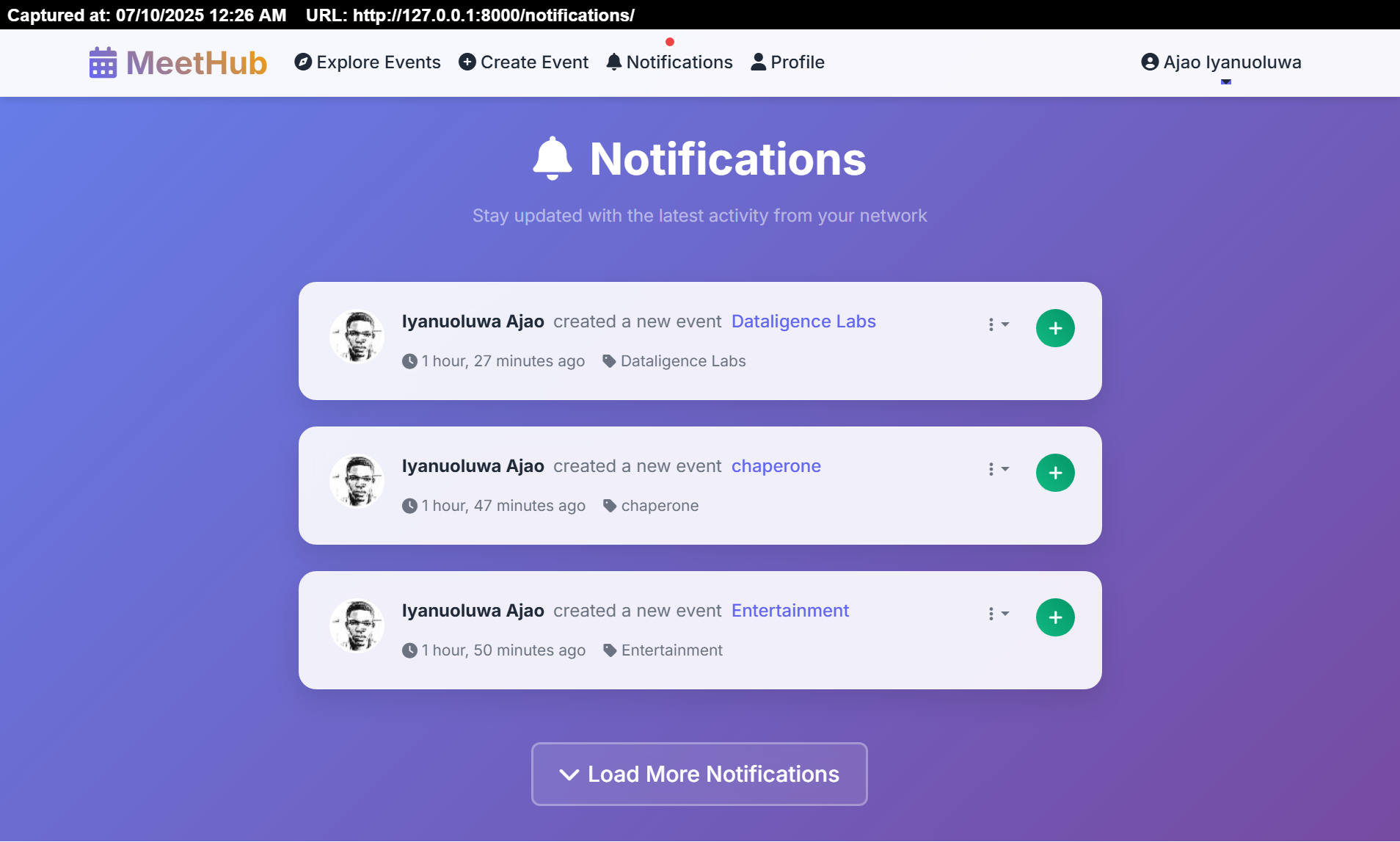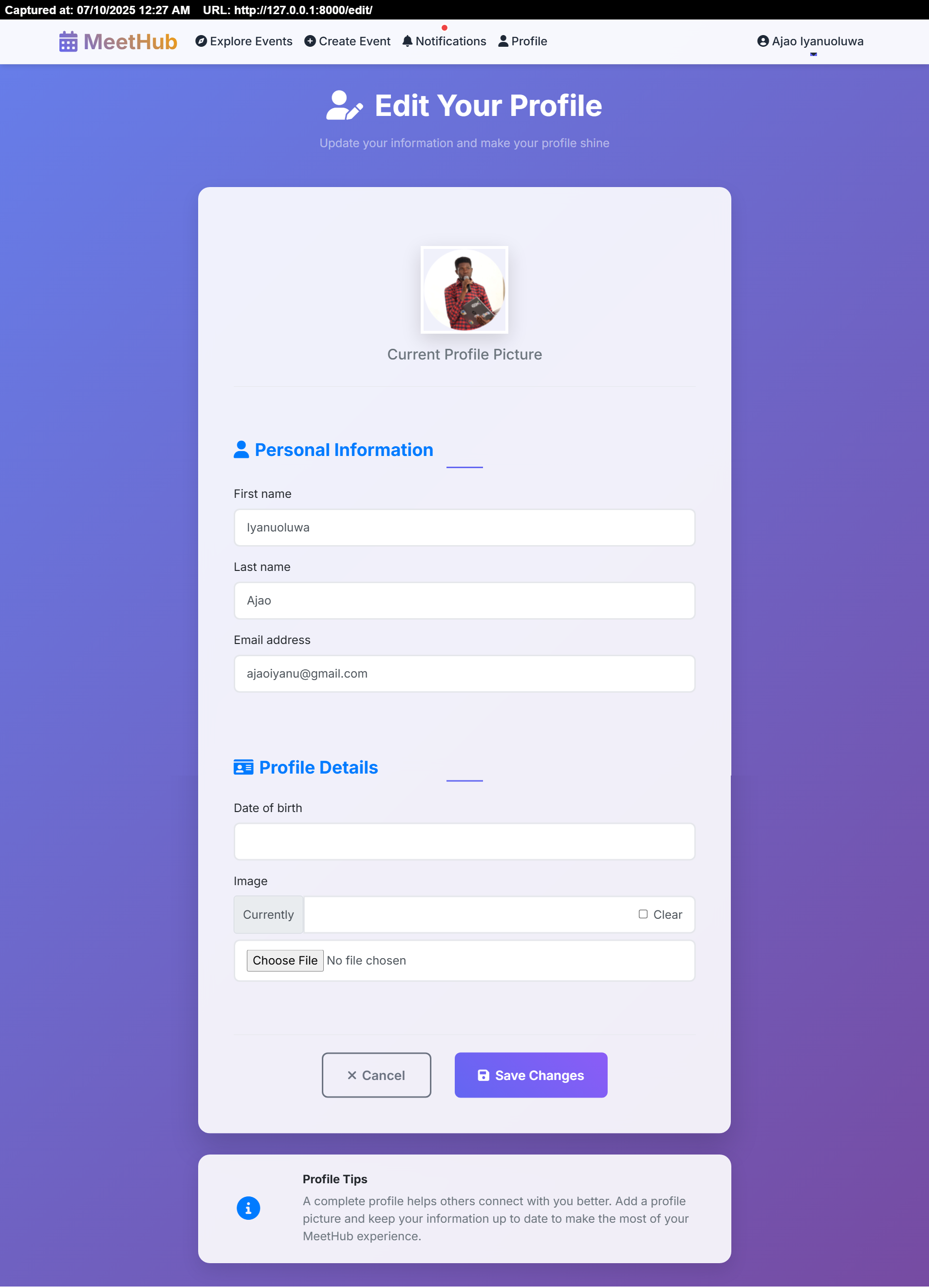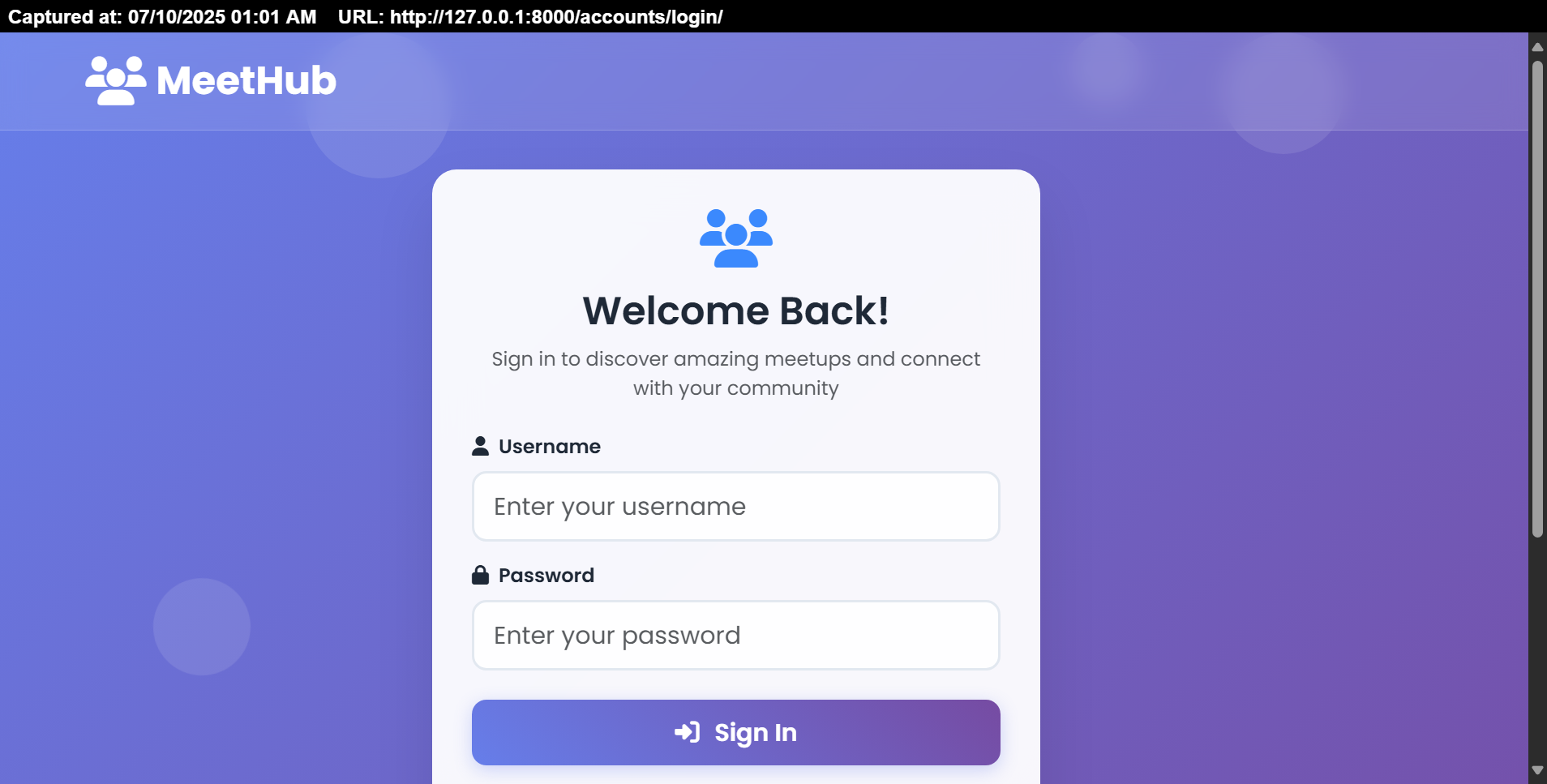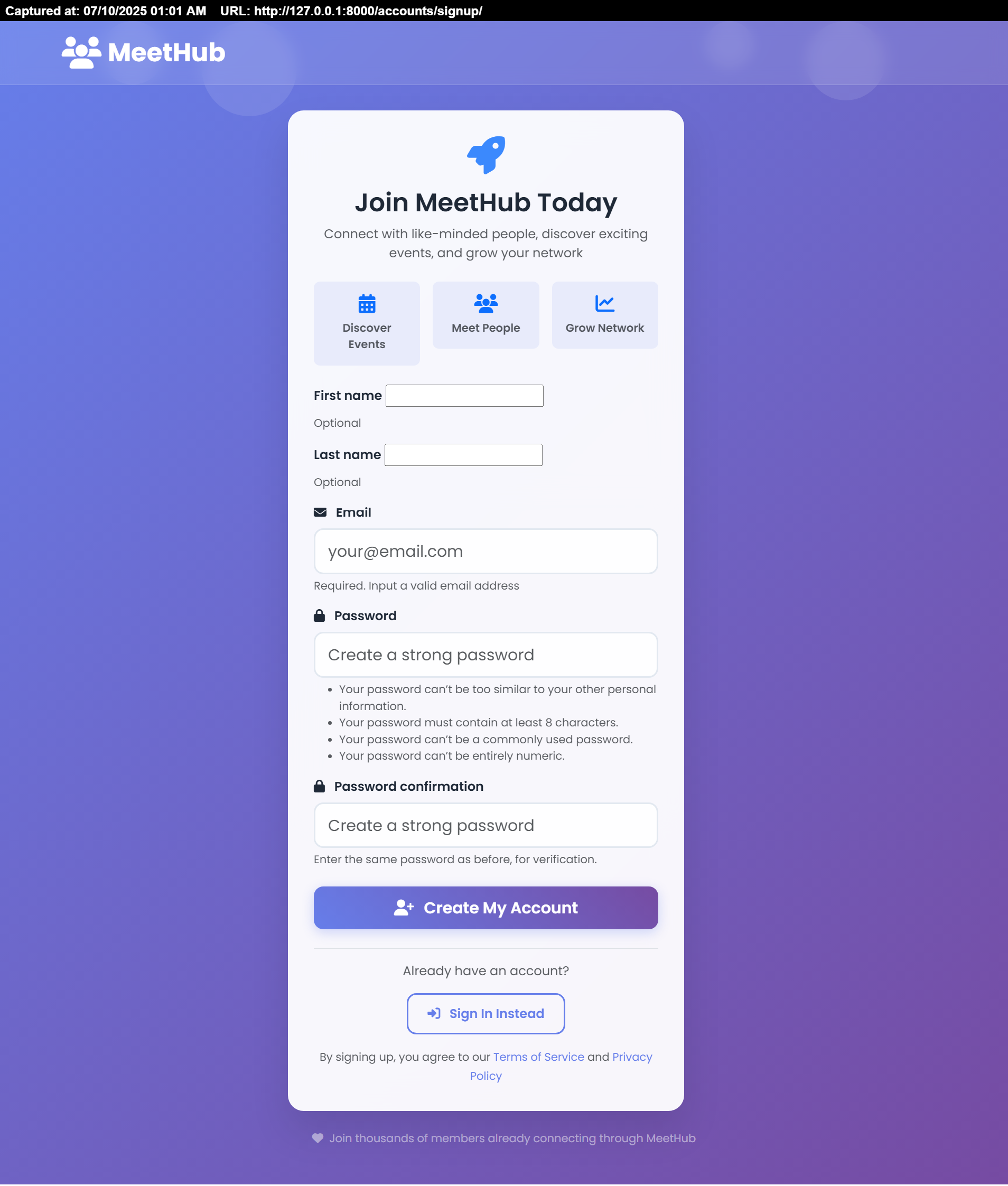MeetHub is an open-source event management system built with Python and the Django Web Framework. It's designed to help people create, discover, and manage events, fostering community and connection. Whether you're organizing a tech meetup, a book club, or a hiking trip, MeetHub provides the tools to bring people together. As a learning platform, it offers a practical, real-world codebase for developers looking to gain experience with Django, containerization, and modern web development practices.
- 📅 Event Creation & Management: Easily create, update, and manage your own events.
- 🔍 Event Discovery: Explore a list of upcoming events to join.
- 👥 User Profiles: Create a personal profile and see who's attending events.
- 💬 Event Discussions: Comment on events to ask questions and connect with attendees.
- 🔔 Real-time Notifications: Get notified about relevant activities.
- 📱 Responsive Design: A clean, modern UI that works on any device.
Click to view screenshots
- Learn Django: Get hands-on experience with a real-world Django application.
- Make an Impact: Your contributions will directly improve a tool for community building.
- Join a Welcoming Community: We are excited to help new contributors get started.
- Backend: Python, Django
- Database: PostgreSQL (production), SQLite3 (development)
- Frontend: HTML, CSS, Bootstrap 5, JavaScript
- Deployment: Docker, Gunicorn, Whitenoise
- Package Management:
uv - Cloud Services: Cloudinary (for media), NeonDB (for database), Render (for hosting)
You can run MeetHub using uv (recommended for development) or Docker or virtual environment.
- Python 3.10+
- pip
- uv (recommended)
uv
- Clone the repository
git clone https://github.com/iyanuashiri/meethub.git - Sync the dependencies
uv sync - Run migrations
uv run python manage.py migrate - Run the server
uv run python manage.py runserver - Create a superuser (for admin access):
uv run python manage.py createsuperuser
virtual environment
- Clone the repository
git clone https://github.com/iyanuashiri/meethub.git - Create a virtual environment
python -m venv venv - Activate the virtual environment
venv\Scripts\activateon windows orsource venv/bin/activateon linux - Install the requirements
pip install -r requirements.txt - Run the migrations
python manage.py migrate - Run the server
python manage.py runserver
docker
- Clone the repository
git clone https://github.com/iyanuashiri/meethub.git - Build the image
docker build -t meethub . - Run the container
docker run -p 8000:8000 --env-file .env meethub - Create a superuser (for admin access):
docker exec -it meethub python manage.py createsuperuser - The app will be available at http://localhost:8000. The entrypoint script will automatically run migrations.
Visit http://127.0.0.1:8000 in your browser!
- Cloudinary
- Render or any other hosting service
- NeonDB or any other database service
Before you start, copy the example environment file and fill in your details.
cp .env_example .env- SECRET_KEY
- DATABASE_NAME=
- DATABASE_USER=
- DATABASE_PASSWORD=
- DATABASE_HOST=
- DATABASE_PORT=
- DEBUG=True
- CLOUDINARY_NAME=
- CLOUDINARY_API_KEY=
- CLOUDINARY_API_SECRET=
You will need to set the SECRET_KEY. For local development, you can leave the database and Cloudinary variables blank to use SQLite and local media storage.
Visit http://localhost:8000 in your browser.
Add threaded comments for better discussions Add location-based event exploration (e.g., with a map) Implement social authentication (Google, GitHub) Add event categories and tags for better filtering (good first issue) Enable event sharing on social media
We have a lot of exciting features planned! Here are some ideas, many of which are great for first-time contributors.
- Add a comprehensive test suite (help wanted, sprint)
- Implement REST API for a mobile-friendly experience
- Add threaded comments for better discussions
- Add location-based event exploration (e.g., with a map)
- Implement social authentication (Google, GitHub)
- Add event categories and tags for better filtering (good first issue)
- Enable event sharing on social media
Contributions are welcome! Contributions are what make the open-source community such an amazing place to learn, inspire, and create. Any contributions you make are greatly appreciated. Please feel free to submit a Pull Request. See our Contributing Guide for details on our code of conduct and the process for submitting pull requests to us.
This project is licensed under the MIT License - see the LICENSE file for details.
